|
Many Calgary Catholics are pushing through the coldest week of the new year by holding onto fond memories of the Christmas past. Others in the city’s East Asian communities keep themselves warm by anticipating the opportunity to celebrate the Lunar New Year on Saturday, Jan. 25. Ditto for parishioners at other ethnic parishes in the Diocese, where being Catholic and Canadian means you can commemorate important secular events with festivities that include prayerful appreciation of the cultural traditions that moved to Canada with their families. Calgary’s Korean, Chinese and Vietnamese communities celebrate the Lunar New Year on the second new moon after the winter solstice. At St. Anne’s Korean Catholic Church in the community of Ramsay, parishioners will welcome the Lunar New Year with special prayers at the 11 a.m. mass on Sunday, Jan. 26, says parishioner and parish spokesman Nes (Luke) Noh. That service will be followed by a traditional New Year’s Day meal of rice cakes and soup in the parish hall. The rice cakes will come from a Korean market, the soup from parishioners. “We expect about 300 people,” says Noh. “No matter what the weather, people like to get together to celebrate. It’s tradition.” Culturally, the Lunar New Year is also a good time to honour the memory of ancestors, so Korean Catholics will also offer prayers for their deceased family members, says Noh. Week of Prayer about a shared faith This year’s Lunar New Year falls at the end of the Week of Prayer for Christian Unity, says Theodoric Nowak, Director of Social Justice and Outreach Ministries with the Calgary Catholic Diocese. This year’s Week of Prayer, set for Jan. 18 to 25, calls for Christians to move from shared prayer to shared action. The theme also challenges Christians to show greater generosity to people in need. “In a Diocese as diverse as Calgary’s, it’s always important to remember the different backgrounds which people come from and the traditions they hold,” says Nowak. “The Week of Prayer for Christian Unity reminds us that despite the differences which exist between cultures and denominations, we find unity in our love of Christ and commitment to achieving the common good.” In addition to prayers for the faithful being offered for Christian Unity, the FCJ Centre and Ascension Parish will each host prayer events, adds Nowak. Cultural and spiritual traditions New Year celebrations at St. Stephen Protomartyr Church also reflect cultural and spiritual traditions, says Fr. Gregory Faryna. The Jan. 1 liturgy at this Ukrainian Catholic church in Glamorgan, celebrated the naming of Jesus and the feast of St. Basil the Great. An early Church father who defended the orthodox faith, St. Basil the Great is especially important to Albertans of Ukrainian heritage. At Fr. Albert Lacombe’s request, St. Basil sent Basilian priests to the Edmonton area to serve European Catholics who came from the Byzantine tradition, explains Fr. Faryna. As the Ukrainian people historically followed the Julian calendar, Fr. Faryna’s parish also marked the Ukrainian New Year. While the actual date was Jan. 13, St. Stephen held a Ukrainian New Year banquet and dance on Friday, Jan. 8. About 200 people filled the parish hall for the event, which included a performance by a local Ukrainian dance group. Since many parish families are compromised of Ukrainians who married outside that ethnic group, events like these are an important way of sharing cultural traditions, says Fr. Faryna. The Ukrainian New Year was also part of the Sunday liturgy on Jan. 12. There, the community offered special prayers for world peace and prayers for lives lost in the Ukrainian airliner shot down in Iran earlier this month. Ukrainian Catholics approach each new year with prayers that honour the past year and help people prepare for the year to come, adds Fr. Faryna. Some families also commemorate the new year by performing or attending a traditional Malanka (which means new year) play. The play reminds people living through the long nights of winter that spring is on its way. “It’s that anticipation of new life that’s coming around the corner,” says Fr. Faryna. 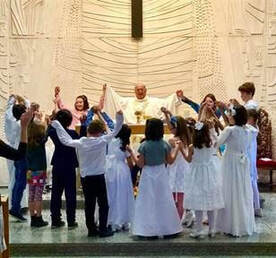 Children's Christmas celebration at Ste. Famille's Parish, Calgary Children's Christmas celebration at Ste. Famille's Parish, Calgary Over at Ste.-Famille Church just south of the downtown core, Msgr. Noel Farman says the arrival of 2020 got him thinking about how important his parish is to the local francophone community. Ste.-Famille is the only French-language parish in Calgary. Many of the children Msgr. Farman met when he arrived at Ste.-Famille 11 years ago are now adult parishioners attending post-secondary schools or working. “This Christmas I told them, ‘I consider myself as your grandfather.’” As with Korean-speaking parishioners at St. Anne’s parish, Msgr. Farman knows many of his parishioners make a special effort to attend a French-language mass for special events, including Christmas and New Year’s. At this year’s Christmas Eve mass, children gathered around the priest’s chair and treated mass attendees to a special performance. “It was like a dialogue between three candles representing faith, hope and love,” says the priest. The recitation ended with the candles representing faith and love declaring that hope brought them together to help each other. This Christmas season, Ste.-Famille weathered the deaths of four people with close ties to the parish. Msgr. Farman says he was touched by how so many of his parishioners travelled to funerals in Edmonton and Claresholm to show their solidarity to each other and to their faith. “I was thinking, this is how we show our belief in eternity, we pray for those who have passed.” For more information on this 2020 Week of Prayer for Christian unity, please download this poster. By: Joy Gregory
0 Comments
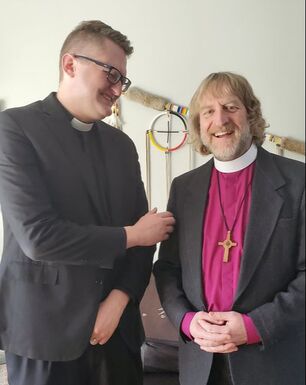 Fr. Adrian Martens (left) and Archbishop Gregory Kerr-Wilson (Anglican Diocese of Calgary) Fr. Adrian Martens (left) and Archbishop Gregory Kerr-Wilson (Anglican Diocese of Calgary) Do we still need to pray for Christian Unity? The annual Week of Prayer for Christian Unity will begin Saturday, Jan. 18. In many countries, Christians will gather in one anothers’ churches to pray. Since the 1960s, prayers and readings for the week have been jointly planned by the Vatican and the World Council of Churches. Christian unity was a chief goal of the Second Vatican Council and signified the lowering of barriers that caused pain within families, between spouses, and in the workplace. The significance of this ecumenical movement is not lost on Rev. Adrian Martens of the Roman Catholic Church and Anglican Archbishop Gregory Kerr-Wilson. So, have we been successful in attaining Christian unity? Archbishop Kerr-Wilson, Anglican diocesan bishop of Calgary and metropolitan of the ecclesiastical province of Rupert’s Land says there has been some success. There is a consensus that “we believe the same things. We have the same God. These similarities weren’t seen 50 or 60 years ago. However, the work is ongoing. Our goal should be to share at one table.” Rev. Martens, Ecumenical and Interreligious Affairs Coordinator in the Roman Catholic Diocese of Calgary says, “there have been wonderful strides and some dark periods in the history of Ecumenism. At times, we vary in our degree of Ecumenism. However, if we focus on being joined with Christ, other denominations will want to share much more.” So, while there seems to be some success in terms of dialogue and mutual understanding of other Christian denominations, has there been any tangible gains? Kerr-Wilson says “there have been many benefits to diverse Christian traditions. Different traditions have different strengths and emphasise different things. The Anglican Church went through several centuries with no Eucharist or mass unless you went to the early service for the most devout. The ecumenical relationship helped us to recover the benefit of seeing the Eucharist as the heart of Church worship. This is an example of receptive ecumenism, what we can receive from you that can deepen our own life in Church and faith in Christ. The gift of the other.” “…We need to realise that the other’s gift is our gift as well,” says Martens. In the eyes of both Kerr-Wilson and Martens, various Christian traditions and values from different areas and places around the world have helped the abundance of faith. Martens has seen a marked increase in the number of Christians from other countries. “There is also an increase in the number of Anabaptists, Hutterites and Mennonites.” One aspect of this growth is the level of fluidity between denominations. Kerr-Wilson notes that “some Anglicans from different countries find that the way they worshiped is more similar to a different denomination here e.g., the Nigerian Anglican expression is similar to a Pentecostal church. There are some positive and hopeful aspects of this fluidity as well as some troubling things. The positive is that we see Christian faith in the other. The negative is that we are leaning towards consumerism, ‘if I am not happy with what is going on, I can move somewhere else.’ There isn’t that commitment to persevere in the midst of the struggle, which is an essential part of the discipleship.” The looming question for Kerr-Wilson seems to be not whether we still need to pray for Christian unity, but rather, how can we act more together? “When we talk to each other, we need to recognize that we are not talking to a Catholic, Anglican or Presbyterian. We are talking to a brother in Christ, a sister in Christ. I have seen that when people engage in prayer and bible study together more regularly, that brings them closer together. I would love to see a monthly service where we gather as Christians to pray for others to come to the knowledge of Jesus Christ. We should be fueled by our faith to act together on social justice initiatives. Martens agrees that such joints actions will help remove barriers in families of mixed Christian denominations. “We can do more to make other denominations feel welcomed. Prayer is the best thing. We can lead the Prayer of the Faithful to pray for local churches.” By Nadia Hinds
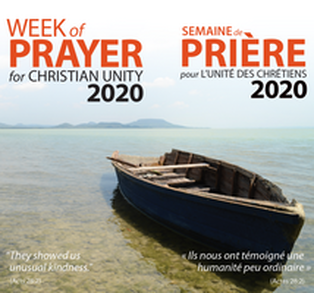 The story of St. Paul’s shipwreck on Malta from Acts 27:18 – 28:10 leads this year’s Prayer for Christian Unity. The diverse group of passengers on the boat were at the mercy of the force of the sea and the violent storm around them. They had lost of hope of being saved but an angel of God had come to St. Paul and assured him that God would grant them safety. Through his faith in God, St. Paul encouraged the group. When they ran aground, the people on the island embraced them with “unusual kindness” (Acts 28:2). Hospitality The question to ask during this week of Christian unity is whether we show “unusual kindness” and become witnesses of God’s loving providence to all people. Hospitality is a much needed virtue in our search for Christian unity. It is a practice that calls us to a greater generosity to those in need. Our own Christian unity will be discovered not only through showing hospitality to one another, important though this is, but also through loving encounters with those who do not share our language, culture or faith. Prayer The Week of prayer for Christian Unity takes place January 18 – 25.
January 18 Acts 27:18-19, 21 January 19 Acts 27:20 January 20 Acts 27:22, 34 January 21 Acts 27:23-26 January 22 Acts 27:33-36 January 23 Acts 28:1-27 January 24 Acts 28:3-6 January 25 Acts 28:8-10 |
Author
Catholic Pastoral Centre Staff and Guest Writers Archives
July 2024
Categories
All
|
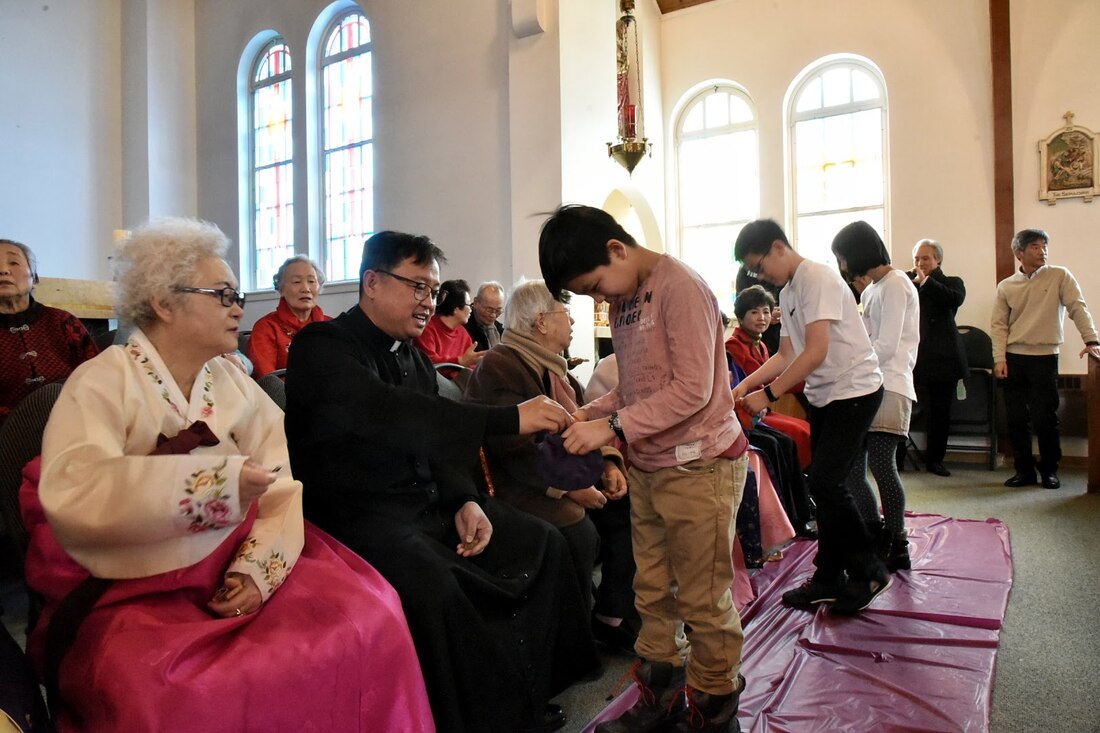
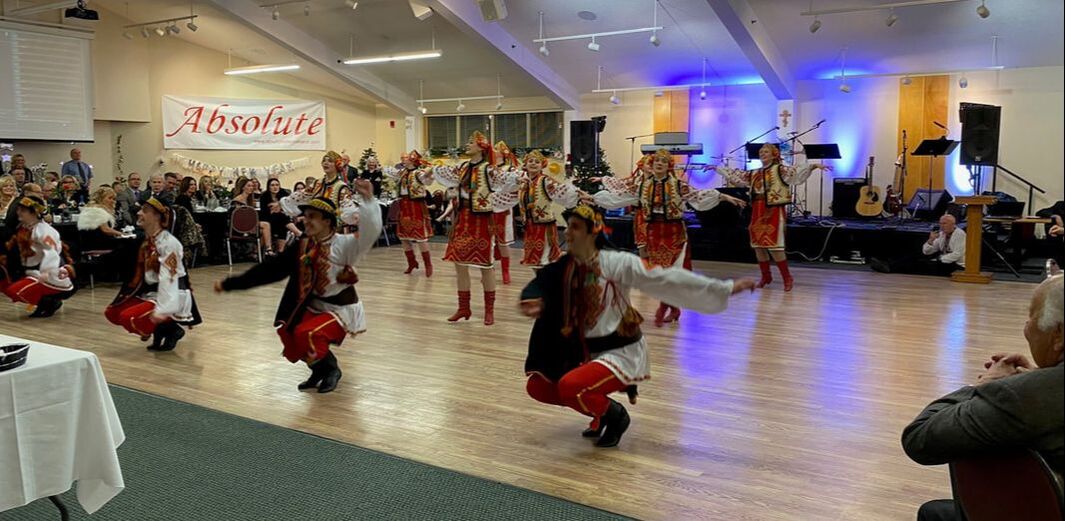
 RSS Feed
RSS Feed